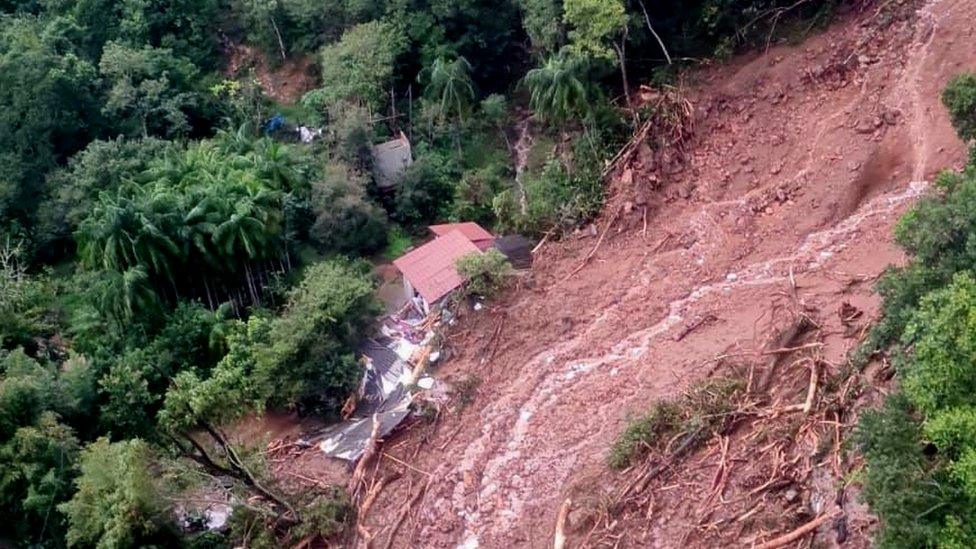Brazil floods: Residents stranded on rooftops in Rio Grande do Sul
- Published

At least 10 people have died and more than 20 are missing after storms caused flooding in the southern Brazilian state of Rio Grande do Sul.
Helicopters are flying over the region searching for people who have been left stranded.
In some areas, the flooding is so severe that helicopters have been unable to land and have had to winch residents to safety.
The state's governor has asked the federal government for help.
"President Lula, please immediately send as much air support as possible for RS [Rio Grande do Sul]. We need to rescue hundreds of people in dozens of municipalities who are in an emergency due to the intense rain which has already fallen and which is going to continue falling in coming days," Governor Eduardo Leite wrote on X, formerly known as Twitter, external.
President Luiz Inácio Lula da Silva responded, saying that the federal government would "join the efforts of state government and municipalities to get through this difficult time, which is the result of climate change affecting the planet".
According to officials, 10 people were killed. Two people died when the car they were in was swept away by the floodwaters in the small town of Paverama. Another died in a landslide in Salvador do Sul.
Twenty-one people are still missing, and around 1,500 people are stranded.
"We continue to work hard to locate the missing and ensure the safety of communities in at-risk areas," Mr Leite said.
The mayor of Sinimbu told the G1 news site that her town was living through "a nightmare".
In Candelária, residents took to the roofs of their homes as their houses filled with water.
Bridges have collapsed and more than 20 streets rendered impassable, making it hard for emergency services to reach the affected areas.
Meteorologists have predicted further rains to fall in the region as a cold front moves across it.
Last year, more than 30 people were killed in a cyclone in Rio Grande do Sul.
Brazil's National Institute of Meteorology attributed the increased intensity and frequency of rainfall to the climate phenomenon El Niño.